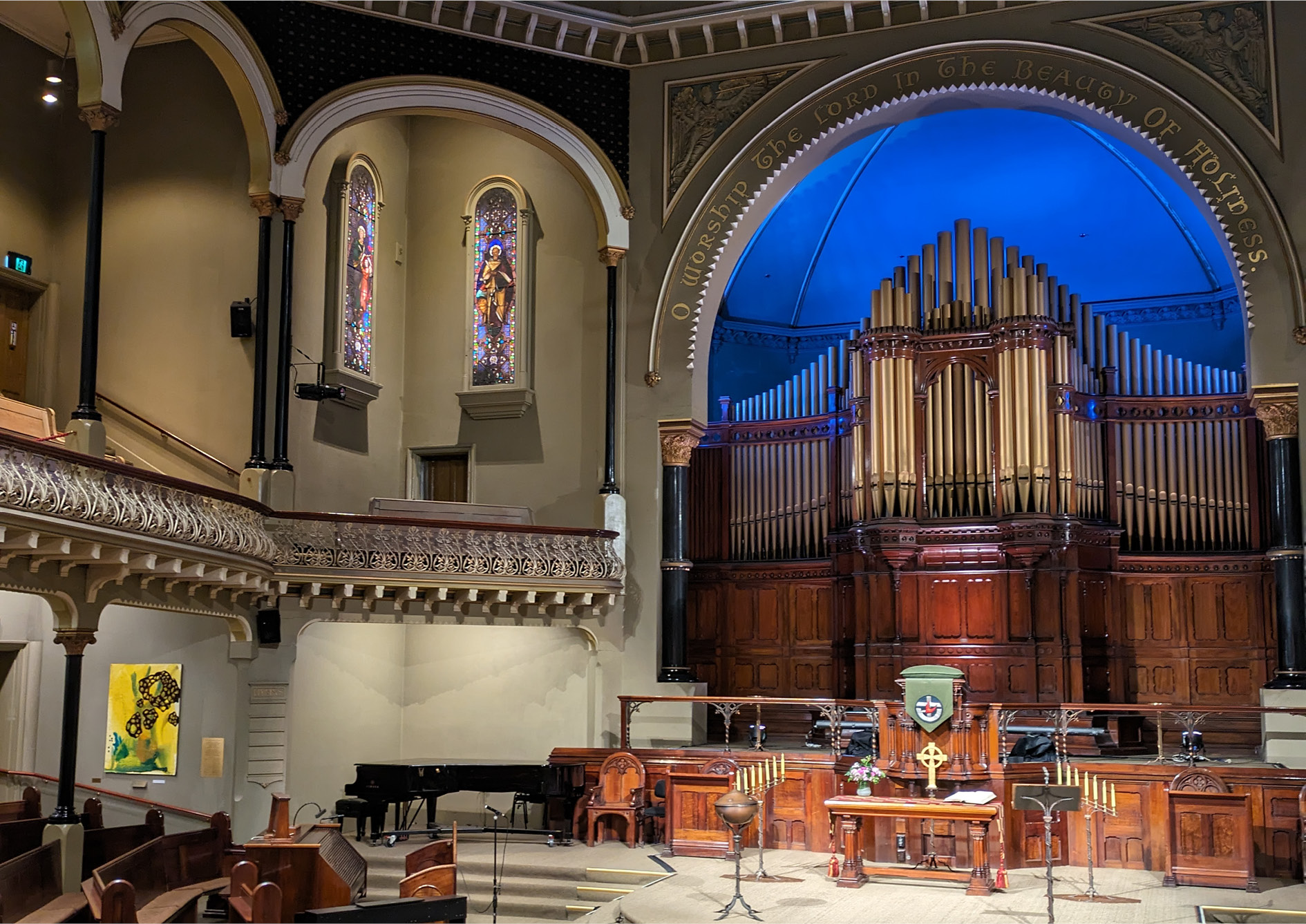
- This event has passed.
Lunchtime Organ Recital

The St Michael’s organ recital is the perfect opportunity to take a break and enjoy the magnificent sound of the Grand Pipe organ while taking in the beautiful surrounds of St Michael’s Uniting Church in Melbourne.
Make an organ recital part of your lunch plans and join us for a St Michael’s Lunchtime Organ Recital this Thursday.
The recital series features St Michael’s organist, Rhys Boak and guest artists.
For over the decade the free organ recitals have brought the joy and beauty of live music to many Melbournians and visitors.
Free event. Doors open at 12:30pm
Recital starts at 1:00pm
Share our flyer
A History of the St Michael’s Organ
The first St Michael’s organ was built in 1866 by the famous London firm of Hill & Son (job number 1204).
It was a two manual, mechanical action organ that contained 18 speaking stops. Interestingly, the pipework and some of the wind chests were the basis for the subsequent instruments.
1920s Remodel
When the original Hill organ needed repair, the Melbourne company George Fincham & Sons built a new instrument in 1923. They used some of the parts from the original. They also included the then popular, tubular-pneumatic action system. This meant the organist could be seated away from the organ pipes and allowed them to have a lighter key touch.
1950s Rebuild
In 1951, the organ was rebuilt and fitted with electro-pneumatic action.
Prominent English organist and composer Eric Thiman opened the organ.
Current Organ
As the needs of the church outgrew, the organ needed another update.
The organ you see in St Michael’s today was built in 1958 by George Fincham and Sons (who also built the 1923 organ). This time by George Bowring Fincham, grandson of the original George Fincham who started the company in 1864!
The console was moved from its central location beneath the pulpit to the current position in 1978 and the 1979 the swell mixture stop was recast in 1979.
The present organ has 3 manuals and pedals, 44 speaking stops and approximately 2225 speaking pipes.
The keys and stop action are electro-pneumatic.
